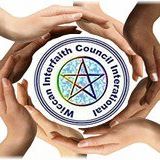| We are appalled at the definitions used on your sites for our religion. The Dictionary.com definition of PAGAN has eight |
| classified meanings, one is neutral and the other seven are negative stereotypes created during the dark ages. As we |
| now live in a more enlightened period, where religious diversity is respected, we view being described as "idolator", |
| "morally deficient", "savage", "godless", "profane", "spiritually stunted", etc., as religious bias. This prejudicial entry |
| is in stark contrast to the glowing definition afforded to the word "Christian", which references "decent", "human", |
| "humane", "not brutal", and "exhibiting a spirit proper to a follower of Jesus Christ". The antonym section gives |
| two positive words. |
| The entries for Thesaurus.com are even worse: A Pagan is described as "person who does not believe in an orthodox religion", |
| "irreligious", "agnostic", "heathen", "infidel", "atheistic", "idolatrous, and "impious". There are 114 extra "related words" that do |
| little more than reveal the author(s) and your site's discrimination against those that follow the Pagan nature-based faith. |
| Again, by contrast, the thesaurus has 57 entries for "Christian" that are positive, ranging from "honest" and "decent" to "ethical" |
| and "noble". The antonym section of seven words words that can be classified as negative. |
| For your own instruction, the generic definitions of a Pagan are from the Latin word paganus "a country dweller, and is often |
| coupled with the neutral descriptor "polytheist". However, the definitive meaning of the word comes from The Standard Dictionary |
| of Facts, 1908, edited by Henry W. Ruoff : "The word pagan was originally applied to the inhabitants of the rural districts, who, |
| on the first propagation of the Christian religion (my italics), adhered to the worship of false gods, or who refused to receive |
| Christianity after it had been adopted by the inhabitants of the cities." Pagans are members of polytheistic communities who |
| worship female and male deities, with some as mono- or duo-theists, henotheists and kathenotheists. And there are Pagans |
| who belong to mainstream religions such as Christianity. It is not the task of Dictionary.com nor Thesaurus.com to condemn |
| Paganism as a false religion and their devoted followers as "infidels". |
| As a 501 c3 Pagan-based organization, the Wiccan Interfaith Council International would like to see Dictionary.com and |
| Thesaurus.com, provide a more objective and more accurate definition and synonyms attached to the words: "Pagan", Wicca, |
| and Wiccan. We, Ms. Turner, are people of faith - a faith that has journeyed and survived thousands of years, pre-dating |
| written history. And while the word Pagan is an umbrella term for many paths and traditions of nature-based religion and |
| spirituality, we ARE a religious, moral, and civilized people who wish to be truthfully represented. |

